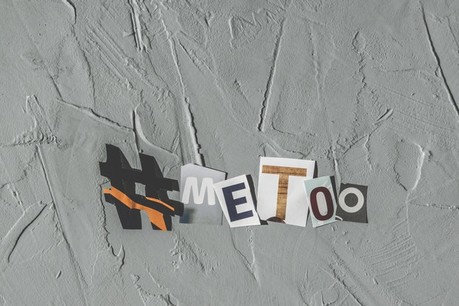
Since the allegations against Harvey Weinstein in October 2017, we have seen a global reckoning over sexual harassment and assault, leading to the birth of the #MeToo and Time's Up movements.
“To some extent, it's positive that we are hearing people being more able to talk about some of the experiences they've encountered, that in some ways there's a light being shone on the situation," said Hannah Storm, director, International News Safety Institute (INSI), at the International Journalism Festival in Italy last week.
"But it has also made us aware of how deep-rooted some of the issues are."
Four years ago, INSI released 'Violence and harassment against women in the news media: A global picture', a 40-page report looking at the dangers faced by women working in news media around the world.
After surveying a thousand female journalists, nearly two-thirds had experienced some form of intimidation, threats, or abuse in relation to their work, ranging in severity from name-calling to death threats.
"You don't have to put up with it," Storm said, noting that the majority of threats, intimidation, and abuse directed toward respondents was perpetrated most often by male bosses, supervisors, and co-workers.
"It is not a contractual obligation of your job as a journalist to have to put up with some shitty, power-obsessed male boss harassing or abusing you.
"You're not alone, and there are women and organisations around the world who will help you if you feel uncomfortable coming forward."
The Second Source is one of these organisations, founded last year by 20 leading female journalists across the media industry.
Freelance journalist Louise Ridley, who co-founded the organisation, explained that many people don't speak out because of the sense of vulnerability they feel, or fear of embarrassment, of not being believed, or their career being affected.
"We didn't know each other before, but at first we would discuss experiences via WhatsApp, and it was clear that so many people had had really traumatic experiences or were just really concerned and wanted to do something about it," said Ridley.
"We are aiming to provide a support network to journalists who have experienced harassment – we aren't trained councillors, but we lend an ear and, if needed, signpost them onto the support they need."
She noted that the survey from INSI showed that the majority of respondents that said they were sexually harassed had been harassed in the workplace.
"This should be the easiest place to create change – it's in an organisation where bosses have power over shaping the culture," she said, adding that Second Source is also tackling other barriers in the media that stop women progressing, starting with a mentorship scheme for women in the first five years of their career and a pledge to try and make conference panels more diverse.
"We are in a tough business, but I don't think we have developed a culture where we care about each other – a sense of togetherness.
"Sometimes the last thing you want to do is reveal a weakness to your boss or manager."
Strong panel discussion with @LouiseRidley @HANNAHSTORM6 @meghamohan and @the__chez on Sexual Harassment in the news industry. Panel are shocked at number of men here - they say the most yet. Audience is roughly 40 people, 10 are men. Really important debate for all. #ijf18 pic.twitter.com/zMybmObJMS
— Edward Lawrence (@EP_Lawrence) April 14, 2018
So how can we all play our part in tackling harassment in the newsroom?
Jasmine Andersson, investigations journalist at PinkNews and co-founder of The Second Source, said that the best thing managers can offer is pastoral care.
"I get trolled a lot, and those small aggressions aren't ones you always feel like your boss has time for in their day – I think the best thing you can offer is pastoral care," she said.
Jane Barrett, head of multimedia, Reuters, also said change starts at the top, with senior members of newsroom staff being open for more junior people to talk to.
"It is a hierarchical industry – it's scary to go to a senior manager if you're 23," she said.
"I feel it's about making yourself available, making people know that it is a safe space, and reaching out to younger women and to those feeling vulnerable."
Storm agreed, and went on to list advice for tackling online harassment from Mary Hamilton, former executive editor for audience, the Guardian, which she gave at News Xchange last year:
- Anticipating campaigns of abuse that target the journalist, the organisation and the entire concept of reporting.
- Preparing for the worst attacks before they happen – fighting forwards and planning things in advance.
- Where applicable, commissioning diverse writers on diverse topics to mitigate their personal risks.
- Designing your systems and tools to minimise harassment and harm.
- Addressing the issue right from the top of your organisation, through all the managers and editors.
"It is absolutely incumbent for those of us that have been about for a few more years to talk openly and honestly," Barrett added, highlighting the importance of continuing the liberation of the #MeToo campaign, while simultaneously implementing consequences for those involved.
Free daily newsletter
If you like our news and feature articles, you can sign up to receive our free daily (Mon-Fri) email newsletter (mobile friendly).
Related articles
- How do we improve how women are treated inside and outside the newsroom?
- #MeToo inside the newsroom, with Jane Bradley and Lucy Siegle
- #MeToo in the media, with Empoword Journalism
- #HeForShe: the role of male allies for women journalists
- Tip: How to write about traumatic events without re-traumatising people











